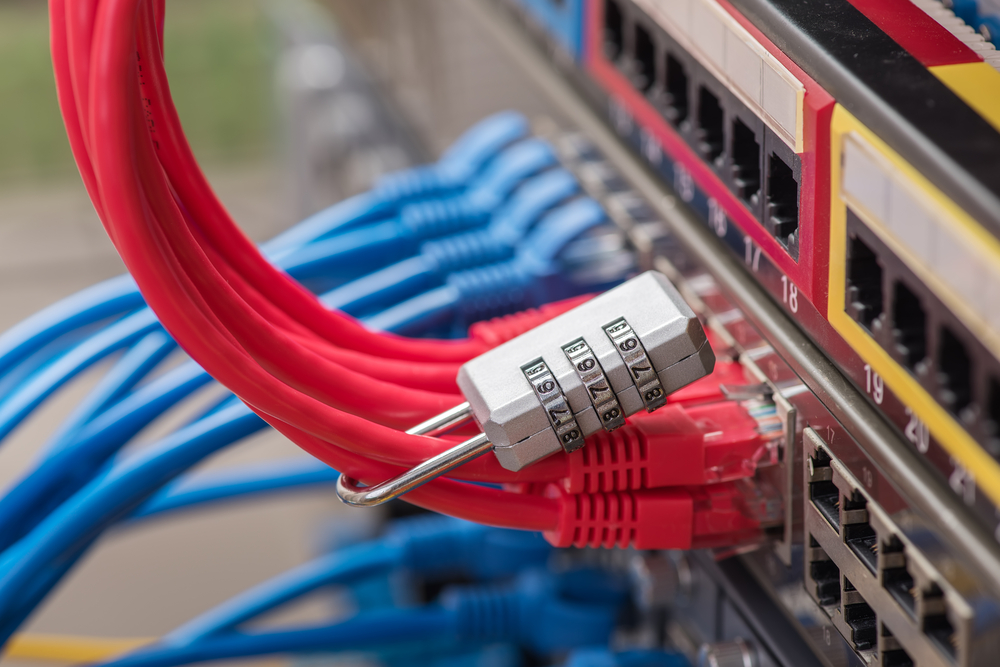
There are various pieces of equipment that often play a major role in digital and cybersecurity infrastructure for many businesses, and two great examples here are routers and firewalls. Cybercriminals have begun to realize that these sorts of components can be vulnerable to attack if they are not properly protected, and ensuring protection here is vital for your company.
At Elevated Networks, we’re here to offer a wide range of cybersecurity services and other managed IT solutions for clients around St. George, Salt Lake City and other parts of Utah. We assist with any components your organization utilizes, including routers and firewalls of any kind. Here are some basics on what routers and firewalls do, why certain attacks involving these components have become more common across the last couple years, and what your organization can do – with our help wherever necessary – to safeguard them and avoid such risks.
What Routers and Firewalls Do
Most people are at least generally familiar with the router, which serves as a central hub for internet connectivity within an organization. Routers help connect all devices to the same network, and also allow for sharing of information between them.
Firewalls, on the other hand, are designed specifically to protect this network from outside attacks – they monitor incoming and outgoing traffic and block any malicious activity. There are several types of firewalls, but they all work toward this common goal in one way or another.
Routers and firewalls often work in tandem, with the firewall providing an extra layer of security for the router itself.
Increasing Attacks on These Components
Unfortunately, routers and firewalls have become more popular targets for cyberattacks in recent years. Hackers have been able to identify vulnerabilities in these systems that can be exploited for various purposes – malware distribution, data theft, and other malicious activities. It’s become a common tactic for cybercriminals to target routers and firewalls in order to gain access to an organization’s entire network.
For instance, one common attack is known as a distributed denial of service (DDoS) attack, where hackers use multiple compromised devices (often routers and other IoT devices) to flood a network with traffic, effectively shutting it down. Routers and firewalls have also been used in phishing attacks, where cybercriminals manipulate them to redirect users to fake websites for the purpose of stealing login credentials or other sensitive information.
Keeping Your Routers and Firewalls Secure
Given the increasing attention from cybercriminals, it’s more important than ever to ensure your routers and firewalls are properly secured. Here are some tips for keeping them safe:
- Update firmware regularly: Manufacturers often release updates that fix known vulnerabilities in their devices, so be sure to install these updates promptly. For instance, if there is a patch available for your router or firewall, it may address a known vulnerability that could be exploited by hackers.
- Change default login credentials: Most routers and firewalls come with default login information that can be easily found online. Hackers can exploit this to gain access to your device, so make sure to change these credentials as soon as possible after installation.
- Hardware upgrades: If your organization is still using older routers and firewalls, it may be time for an upgrade. Newer devices often have better security features that can protect against the latest threats.
- Robust authentication methods: Consider implementing multi-factor authentication (MFA) for access to your network, as this adds an extra layer of security beyond just a username and password.
- Full visibility and monitoring of components: One of the key strategies many cybercriminals use is to exploit a vulnerability that was not previously known to the organization. To prevent this, it’s important to have full visibility and monitoring of your network components – including routers and firewalls. This allows for proactive identification and mitigation of any potential security threats before they can be fully exploited.
- Managed services: For optimal protection, consider working with a managed service provider (MSP) like Elevated Networks to handle all aspects of your organization’s cybersecurity, including routers and firewalls. This ensures that your components are properly configured and monitored 24/7, leaving you with peace of mind knowing your network is secure.
At Elevated Networks, we are dedicated to providing top-notch cybersecurity services for our clients. Contact us today to learn more about how we assist with router and firewall protection, or for any of our other managed IT and cybersecurity solutions for clients around St. George, Salt Lake City and nearby areas of Utah.


